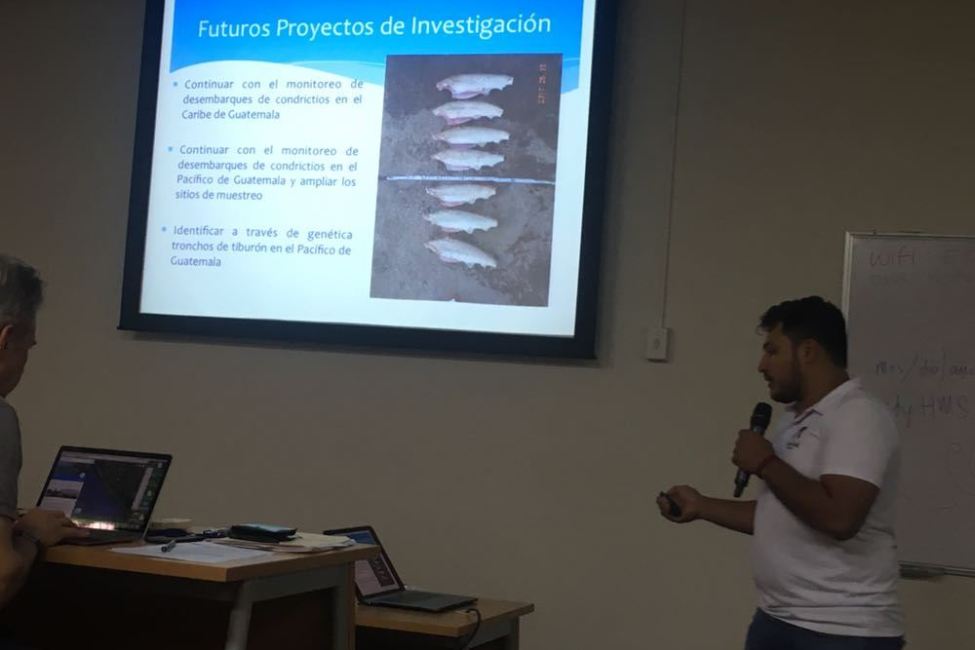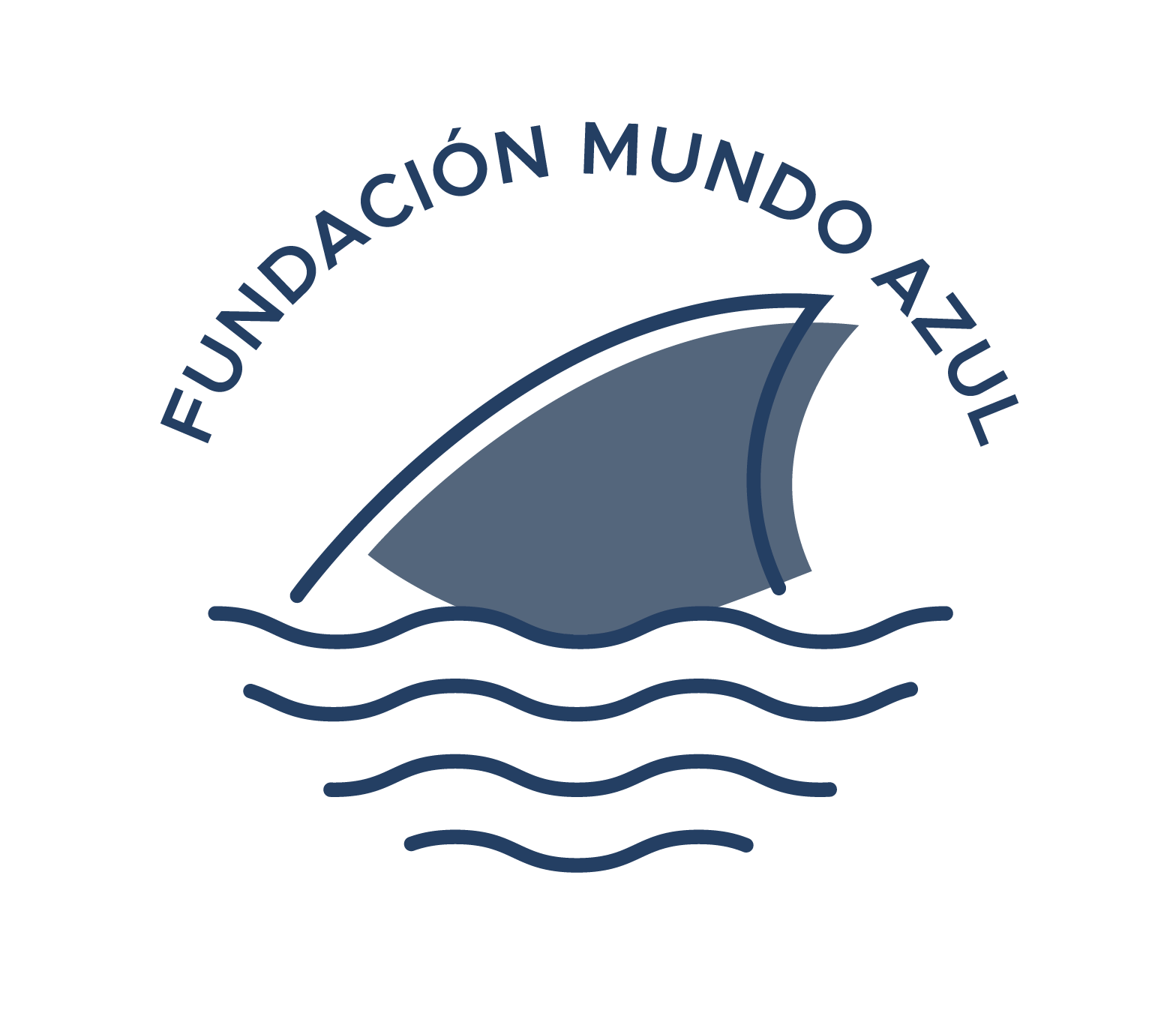
MigraMar held its annual meeting in Panama City from the 13th to the 17th of December of the year 2017. They were present founding institutions of MigraMar, as well as organizations of the East Pacific that carry out research on subject of highly migratory species (mainly sharks, rays, whales and sea turtles). Blue World Foundation was invited to participate on 14th, 15th and 16th December.
During the first day and a half the workshop was conducted biological data and telemetry registered. The workshop was carried out using the program R and R Study for analysis of data captured by acoustic and satellite marks. The first part used the VTrack package to be able to extract data from the records of organisms with acoustic probes and to carry out statistical analyses thereof. The second part was to use the observed data of the individuals marked to predict current behaviors (for example travel behavior, forage, rest, etc.) using data travel speed, angle of turns and depth. The last part was on the use of position data and how to view this data in geographic information systems within RStudio, in addition to relate server data (temperature, chlorophyll, among others) and relate to the Observed data.
After the workshop there was a small round table playing the issue about the attack of sharks and the presentation of a case of a bull shark attacking a tourist in Cocos Island in Costa Rica.
After the workshop there was a small round table addressing the issue about the attack of sharks and the presentation of a case of a bull shark attacking a tourist in Cocos Island in Costa Rica.
The second part of the meeting consisted of the II Symposium on Migration routes and highly migratory species, to carry out this symposium, the representatives of the MigraMar institutions and invited institutions made a presentation of 20 Minutes. The institutions present were Pacific Manta Research Group (United States), Megamouth Kakunjá (Mexico), Blue World Foundation (Guatemala), Paso Pacifico (Nicaragua), Turtle Island restoration Network, Crema, PN Cocos Island, Pacific, MarViva (Costa Rica), Coiba PN, Ministry of Environment (Panama), MarAlliance (Panama and Belize), San Francisco University of Quito, Galapagos pn, Blue Balance, Pontificia Universidad Catolica del Ecuador (Ecuador), Planet Ocean (Peru) Institute of Fisheries and University Austral de Chile (Chile).
Blue World Foundation presented the results obtained from the evaluation of the chondrichthyes fishery, the monitoring using BRUVs and scientific longlines and the evaluation of perception on sharks and rays in the Caribbean of Guatemala. With respect to the Pacific of Guatemala, the preliminary results of the evaluation of the Chondrichthyes fishery were presented in 2 coastal communities. The points that generated greater interest in the people present were: the high incidence of infant and juvenile hammerhead shark (Sphyrna lewini) as incidental fishing in the Pacific of Guatemala, the fishing of juveniles in the Caribbean of Guatemala and the registration of New species in Guatemalan waters, the mutual collaboration between the children of fishermen and Blue World Foundation, as well as the scholarships given to them, and the environmental education material that has been carried out to make known the importance of the Sharks in Guatemala.
